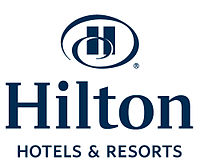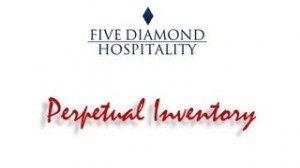In this time of recession, there has been widespread panic throughout the hotel industry. With much lower occupancy forecasts, hotel managers have been trying to prepare for 2009 as it seems like it will be a grim year. But what are some of these managers doing? Some hotels have been laying off employees to meet the demand, finding any way to cut some costs, and even working hourly shifts themselves to save some money. But is this really the right way to do things? We will provide you with a new perspective and maybe you will begin to look at your operations in a new light. You will find that your job as a manager should mean more than trying to catch up to the present.
If you think about your job description as a manager, what does it contain? Is it to remedy situations and deal with issues as they arise? Or is it to strategically plan and steadily improve the hotel as a whole in the long term? If it was written well, your job description should include a combination of both of these areas. Unfortunately, at a time of a worsening economy and with the uncertainty of where your next dollar of revenue will come from, it is hard for managers to think of anything else than the short-term. They begin cutting employee shifts, finding cheaper supplies, and doing anything they can to make that bottom line more attractive. Though yes, some of the cost-cutting is necessary to meet the lower demands, do the managers have the correct mentality when they are going about these profit-saving measures? My guess is no. The managers are usually just thinking, “How can I get this month’s P&L looking good even though we are not getting any business?” Newsflash! If you have no revenues, your profit line will not look good no matter what you try to do!

 Hilton announced today that Hilton Hotels will be moving its corporate headquarters from Beverly Hills, California. They are currently considering the Washington D.C. area and are looking at the Maryland or Virginia area. The move is expected during the third quarter.
Hilton announced today that Hilton Hotels will be moving its corporate headquarters from Beverly Hills, California. They are currently considering the Washington D.C. area and are looking at the Maryland or Virginia area. The move is expected during the third quarter. The Wall Street Journal posted a great article on the rise of employee theft as a result of the recession. You can read the entire article on MSN’s Money page here. The article reports that ‘New research shows that employers are seeing an increase in internal crimes, ranging from fictitious sales transactions and illegal kickbacks to the theft of office equipment and retail products meant for sale to customers.’ The article also mentions that ‘To many employers’ chagrin, the workers guilty of the most grandiose theft frequently turn out to be those deemed to be highly trustworthy’.
The Wall Street Journal posted a great article on the rise of employee theft as a result of the recession. You can read the entire article on MSN’s Money page here. The article reports that ‘New research shows that employers are seeing an increase in internal crimes, ranging from fictitious sales transactions and illegal kickbacks to the theft of office equipment and retail products meant for sale to customers.’ The article also mentions that ‘To many employers’ chagrin, the workers guilty of the most grandiose theft frequently turn out to be those deemed to be highly trustworthy’. Our new training video on Perpetual Beverage Inventory is now available for free. You can also download the excel template as well as written instructions.
Our new training video on Perpetual Beverage Inventory is now available for free. You can also download the excel template as well as written instructions.